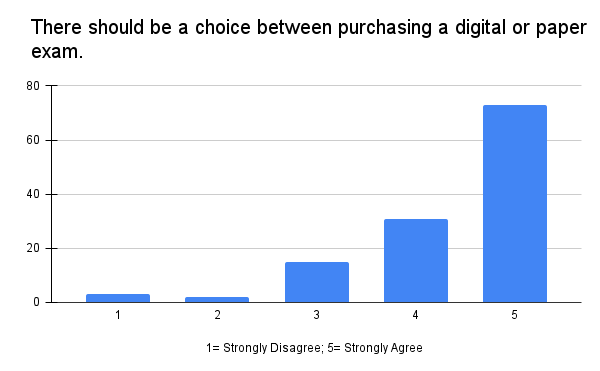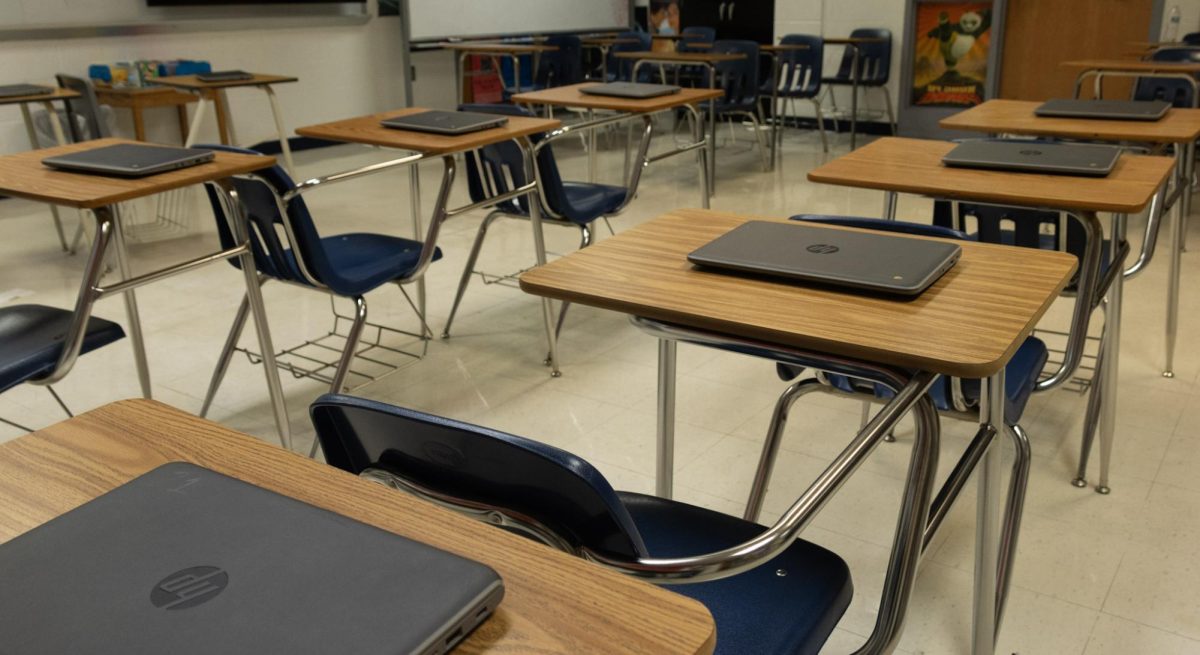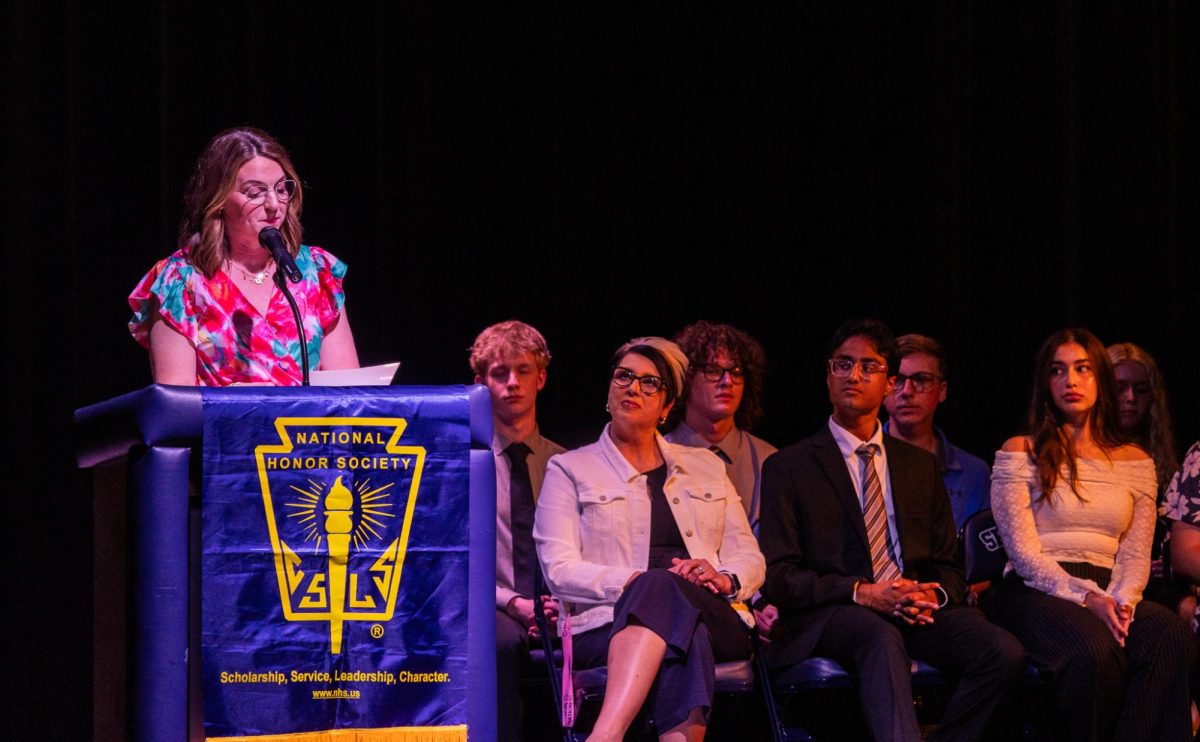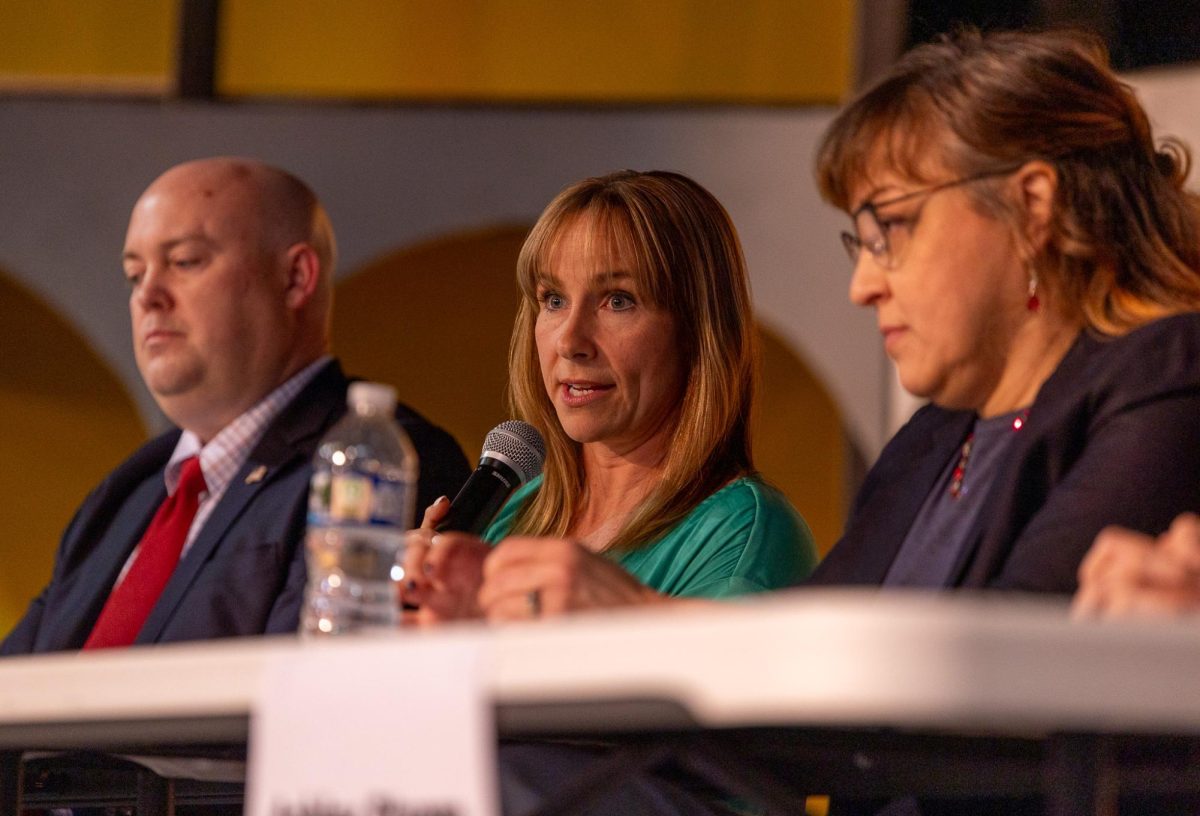As the technological world advances, methods of the past are quickly becoming obsolete and being replaced with the fruits of the future, sometimes faster than what the world is prepared for. After the College Board declared a copious amount of the 2024-25 Advanced Placement (AP) Exams to be digitalized, many teachers and students alike had objections against the decision.
The largest problems at a glance include uncertain logistical solutions, increased potential for fraud, unfair opportunity, and monetary complaints.
AP Language and Composition teacher Ms. Laurie Fay believes the College Board made the switch too quickly before enough logistical problems had been identified and solved. However, it is far too late for the College Board to reverse its decision, and Fay said her main concern is technology in lower-funded areas.
“I think the problem is it not being equitable for all districts. I know that there are some places that just don’t have the funding to have those technology requirements that you would expect for everybody to be digital. I think that College Board probably needs to give options still to schools on which way they deliver the tests,” Fay said. “Yes, they have already made the decision on how they’re delivering those tests.”
Associate Principal Dr. Andy Downs said he will be following the recommendations from the technology personnel to ensure the students have the proper environment for testing, and the biggest problem currently is the access points for computers. Downs describes how the district technology experts are checking the computers to ensure proper connectivity.
“When you have a cart that maybe is in one room, and the computers are on that cart, and we move the computers to a different room, they’re still trying to hook up to the access point in a different room. And so they may be 10 classrooms down the hallway, and trying to locate the access point that they originally came from. And so that makes it a lot more difficult for it to connect,” Downs said. “[Technology personnel] are checking the connectivity of carts that we will be using and in rooms that we will be putting AP testers in.”
Senior Charles Fussell, who is taking six AP exams in 2025, explains his concerns for the digital exams, and how the College Board should allow students to choose which version of test to take.

“I think that they should make it at least optional, whether you take an online or paper copy of AP tests. Leave it up to the students taking the test instead of making decisions for them,” Fussell said. “You have to show your work on some questions, and I don’t know how that will go.”
Another big problem is allocating computers properly, which Downs said FHC will follow the recommendations from district technology personnel. Downs describes the situation in more detail.
“We’re gonna… find the strongest connectivity to support those students. Maybe that’s splitting them into a couple of groups, and testing half here and half there,” Downs said. “I’m confident that we’re going to do everything in our power to make sure that we are making the right choices. It’s a big strain and challenge on districts and buildings because initially, the message was that there would be just a few that were going to be mandated as digital… I think when they shifted from a few to all of them, then it put us in a challenging situation that we weren’t expecting.”
Many Chromebooks have not undergone the updates necessary, and this increases the risk of security breaches, software incompatibility, and decreases operating speed. According to Downs, the FHC technician is working on updating all of the Chromebooks, and has been since the beginning of fall break. However, Downs explains how this monitoring will continue even up to the AP testing dates to ensure all of the technology is up to date.
“The duration of our monitoring will be ongoing,” Downs said. “We’ll be working with our technicians in the building to make sure that’s being done.”
Currently, FHC is planning to do End of Course (EOC) exam testing separate to AP Exam testing. However, some larger AP exams, such as AP U.S Government and Politics, AP Language and Composition, and AP Modern World History, might introduce bandwidth problems because these are usually taken by larger amounts of students. In each classroom, there is a router that can support roughly 60 devices, according to Fay.
Downs explains how the PSAT gives a model of how the Wi-Fi will function, but since the students have recently finished purchasing the exams, it is premature to be sure.
“I think [there were] 90 some-odd kids with [the] PSAT, and that was on the computer, and that worked fine. We had zero interruptions at all,” Downs said. “We look at the PSAT as a model of what to expect. We feel confident that if there was no issues with the PSAT, we should not expect there to be a tremendous amount of issues.”
Despite these issues, a huge game-changer of digital AP Exam essays is typing instead of handwriting, which Ms. Fay explained has the potential to increase scores.
“I think having them typed will help with not losing the message due to handwriting. So I think the scores probably will increase in some regard, but as an overall, I don’t know that it’s going to be a huge difference,” Ms. Fay said.
In his article “Accelerating Our Transition to Digital AP Exams,” Trevor Packer, head of the College Board’s Advanced Placement® Program, writes, “College Board will provide schools with loaner devices and Wi-Fi supports as needed.” However, Packer does not detail how this will be done.
Many rural areas will not have adequate devices and Wi-Fi, which will prevent students in those areas from taking the digital exams. Additionally, another huge problem is fraud prevention. In such rural areas, networks with less security and firewalls create risk of the data being intercepted.
The danger of implementing the digital test option internationally means districts with less secure Wi-Fi networks will be susceptible to security breaches, and even though the higher-funded districts may have a great network, sending the results through domains with insufficient firewalls could allow hackers to intercept the data, which senior Paul Wilson explained.
“For other schools that have to take an online test, that don’t have those kinds of precautions in place, that might screw with their test results, that might end up changing everything for them, and you run into a lot of risk on that,” Wilson said. “You have a problem of legitimacy in the results, where, who knows if you could intercept those results, have somebody intercept them, change them on the way, you have no clue how that might play out.”
Wilson described some ways he thought would increase the security of the computer test process, including printing off the answers and then sending them.
“The actual results have to be printed off and put on paper and mailed back. It means results might take a little longer to come out, but because that increases your level of security, I think it’s better for it. I think they run into a lot less issues,” Wilson said.
A benefit of paper tests is how students feel ownership over their copy of the test. This can increase focus and comfort knowing since the students can do anything with their test, they are the sole controller and owner. Taking away paper not only takes away the ownership but also affects the value of the test. Some students object to paying full price for something ultimately costing less to make. Senior Joey Totra discussed the details of a potential price change due to the homogeneity of the digital exams.
“I do feel like there should be a choice, and if there was a price change, the digital exams should be like, $50 cheaper. The full paper, I feel like they should cost $100 mainly because I do understand that there’s an actual manufacturing cost with the test, but when you’re doing most of it online, then the manufacturing cost is not as great,” Totra said.
However, some are worried about making a compromise that doesn’t directly revert back to the paper tests, but Wilson is optimistic, though aware of the difficulty in doing so.
“I think if you open the ability to do the test optionally, you have a risk of people that choose to do the online part, and their answers might be fraudulent. I think a compromise would be hard to reach, but if you do it in a way that there’s no way for the answers to get out and stay within the system of the school and the system of AP without having to travel over an open network, then it’s a lot safer,” Wilson said. “I think that they’re gonna be stuck with paper in some way or form for pretty much anything if they want to minimize the risk of results being fudged.”










